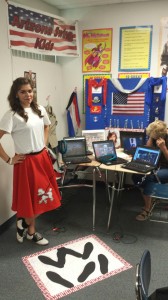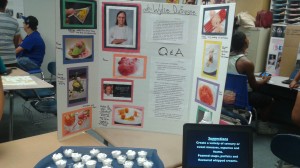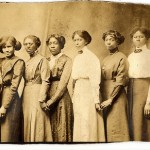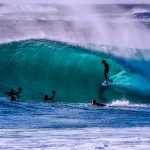This year, I have been participating in the second pilot year of the Teacher Leadership Initiative. This program is a partnership among the National Education Association, National Board of Professional Teaching Standards, and the Center for Teaching Quality. Since August I have been deepening my knowledge about current educational issues, and reflecting on myself as a teacher leader according to the competencies we have studied.
Recently, I realized that in some strange way, I’ve been waiting for a cosmic event that will let me know I can call myself a teacher leader. For instance, perhaps a comet will go streaking across the sky the night I hand in my capstone project. Or there will be a big formal dance, and I will be called to the stage to receive my crown. Something. Somehow, I will know, right?
This is very silly of me, because I know better. I know that leadership can take many forms, and that it evolves over time, and doesn’t need a title. I know this because through the National Board process and the opportunities I have had since then to network with amazing teacher leaders, I know that only some of them have any sort of title to validate their leadership, and that those titles: Teacherpreneur, Department Chair, Mentor, Program Coordinator, Director, Candidate Support Provider– those titles do not encompass what these people have meant to me in my professional life.
My students just finished creating the Tempe Museum of Leadership in my room for the second time. They chose a leader in any field, and honored that person with an interactive multimedia exhibit. We began with this blog entry from Forbes: “Three Types of Leaders the World Needs Most,” and Dan MIller from the Tempe History Museum came and talked with students about exhibit design considerations. Despite a campus-wide printer toner crisis and the wireless server being down for a week, students pulled through, and represented a wide array of inspiring leaders from around the world in their exhibits.

Bill Clinton: Dance Instructor and Youth Activist
The students and I are humbled by the accomplishments of people like Malala Yousafzai, Oprah Winfrey, Michelle Obama, Ghandi, Madame C.J. Walker, Martin Luther King, Jr., Bob Marley, and Eminem. We are in awe of Michael Jackson, Kobe Bryant, Pat Tillman, Walt Disney and Andy Goldsworthy. We are happy to teach and learn about Bill Clinton, the local dance teacher and leader of Arizona Swing Kids, not the former POTUS.
While we honor those who lead publicly, we are also inspired by ideas about leadership from Drew Dudley in his Ted Talk “Everyday Leadership.” His idea is that through everyday interactions, we may have an impact on people that we do not even realize. Each one of us can choose to be a leader each day, and the impact can be important, even when we carry no title.
My journey through the Teacher Leadership Initiative has not always been a smooth one. In fact, many times my ideas for leadership were thwarted when met with the realities of my context. Retreat, reflect, re-tool, carry on, see what happens. My capstone goal was to increase the number of National Board candidates in our district, a number which I believe is currently zero. I’m not sure I will have an immediate impact on that number, but it is all a process, right?
I may not have made the progress I originally envisioned, but, when I look at the competencies, I know I have grown. And I have decided that if I can cure myself of this strange myth that one day the people around me will burst into song and a synchronized swim routine about my teacher leadership, as long as I continue on my journey to be my authentic teacher self, and to have a positive influence on the profession, I can call myself a leader.











Comments 4
Oh, yeah. You can call yourself a leader. Because, except for synchronized swim coaches, the best leaders don’t get people to follow in lock step. They get them to move whatever their engaged in to a new place, which if often done by surprising means and different that intended ends. But often those different than intended ends are better than what was initially desired.
Sandy, you are the best. The tough thing is that in this environment it is really sacrelige to discuss “different than intended ends.” Teach the objective which is linked to the standard until they master the standard. That’s where all the PD focuses.
Oh, I love that Drew Dudley video! When I watched it the first time, I finally understood the idea of teacher leadership. Like you mentioned, I have struggled with my own identity as a teacher-leader over the years. It didn’t seem to matter how many “leadership” positions I held, I just didn’t think of myself as a leader. When I started thinking about everyday leadership, I finally understood what it truly means to advance the profession. I think that the title “leader” is far-misunderstood in our society. Leadership isn’t a badge, it’s a choice. Live on everyday leader! Everyday leaders have the power for significant influence through small, incremental actions
I share that hope!